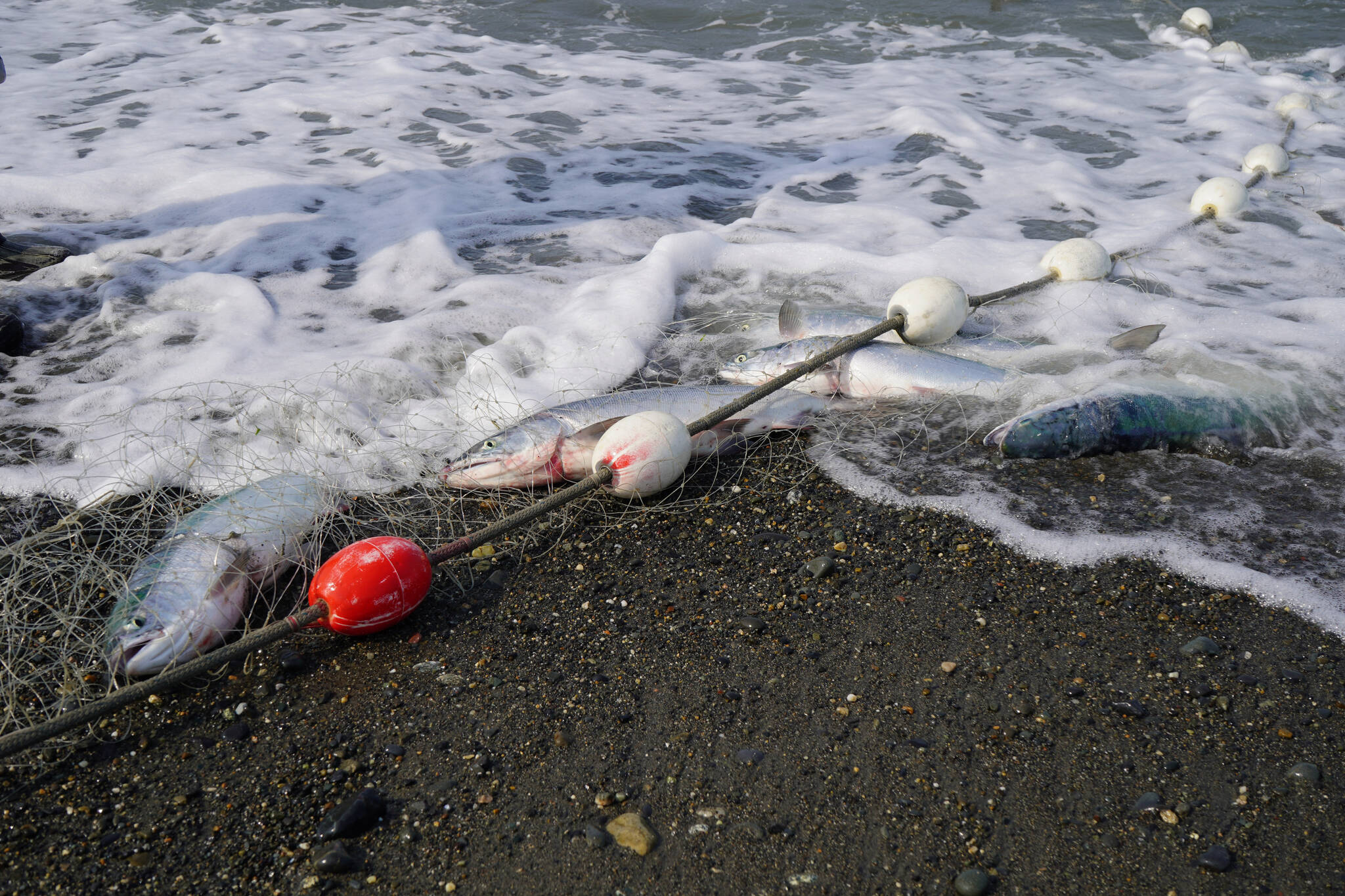Set gill nets were first deployed on the southern end of the Kenai Peninsula to catch salmon by the Kachemak Bay culture of Alaska Natives thousands of years ago.
In more recent times, over the last 150 years salmon caught on the east side of Cook Inlet have been feeding people locally and all over the world. This rich, renewable resource fed and provided financial opportunities for local families and businesses. Fishing beach sites taught generations of kids a strong work ethic and helped maintain cultural ties to prior generations.
As demand for salmon from other user groups has grown, the setnetters who have fished the east side of Cook Inlet have been subjected to fewer and fewer opportunities to fish. Since 2017, the implementation of “paired restrictions” and the adoption of a “big fish” king salmon goal, setnetters hoping to harvest abundant red salmon have had nearly zero viable fishing opportunity.
For decades the east side setnet fishery in Cook Inlet has been managed under a separate set of regulations from the rest of the Central District of Upper Cook Inlet. Many of the permit holders who have fished in the six statistical areas that comprise the fishery have fished for generations but are now shut down while others in Cook Inlet and in river continue to fish.
Because the east side setnet fishery is included in the same administrative area as the rest of the Central District, the Commercial Fisheries Entry Commission (CFEC) is unable to appropriately manage the number of permits that are subject to the unique regulatory environment that governs the east side of Cook Inlet.
I introduced Senate Bill 158 to help solve this problem. The bill proposes a new administrative area be established, encompassing the east side setnet fishery that has been shut down.
This bill does not propose to change the allocation of fish in Cook Inlet.
The bill does not propose any changes to the fishery itself.
SB 158 merely asks the CFEC to create a new administrative boundary around the unique fishery on the east side of the Upper Subdistrict of the Central District of Cook Inlet. It will allow the Commission to more easily manage the permits and will allow opportunities for permit holders in the new area to determine how many permits are appropriate for the east side of Cook Inlet.
I am honored to be your state senator. I want to hear from you. You’re welcome to call my office at 907-283-7996 or email me at Sen.Jesse.Bjorkman@akleg.gov. I hope you’ll take the time to share your questions and ideas.

